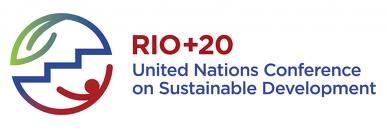Disaster risk reduction and Rio+20
Antony Spalton and Lisa Guppy, disaster risk reduction specialists at UNICEF, assert that children, and especially poor children, are the most vulnerable to disaster impacts in an article for National Geographic.According to the report, a survey of 600 children conducted by the UNICEF and key NGO partners shows that children would consider their communities safe if they provided safe schools, post-disaster safety systems to prevent abuse and violence -particularly for girls- risk knowledge and information and being able to shape decisions regarding their school and home safety.
Madagascar, a highly climate change affected country has not lost any children due to floods and storms since 2006, when they introduced 'child and eco-friendly schools' where children learn about their environment and practice flood and storm drills. The authors warn, "We need to make sure that agreements reached at Rio+20 not only recognize disaster impacts on development but commit all of us to work with children and young people to reduce risks in the first place."
http://newswatch.nationalgeographic.com/2012/06/21/disaster-risk-reduction-and-rio20/
Aggiungi un commento
Accedi dalla colonna di destra per aggiungere un commento.


Commenti (0)